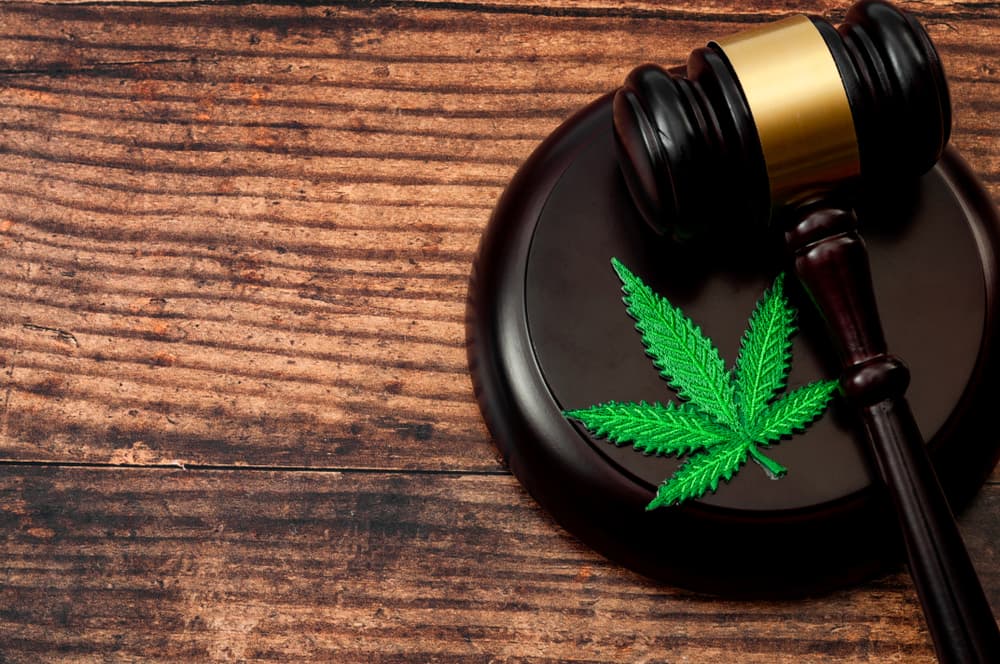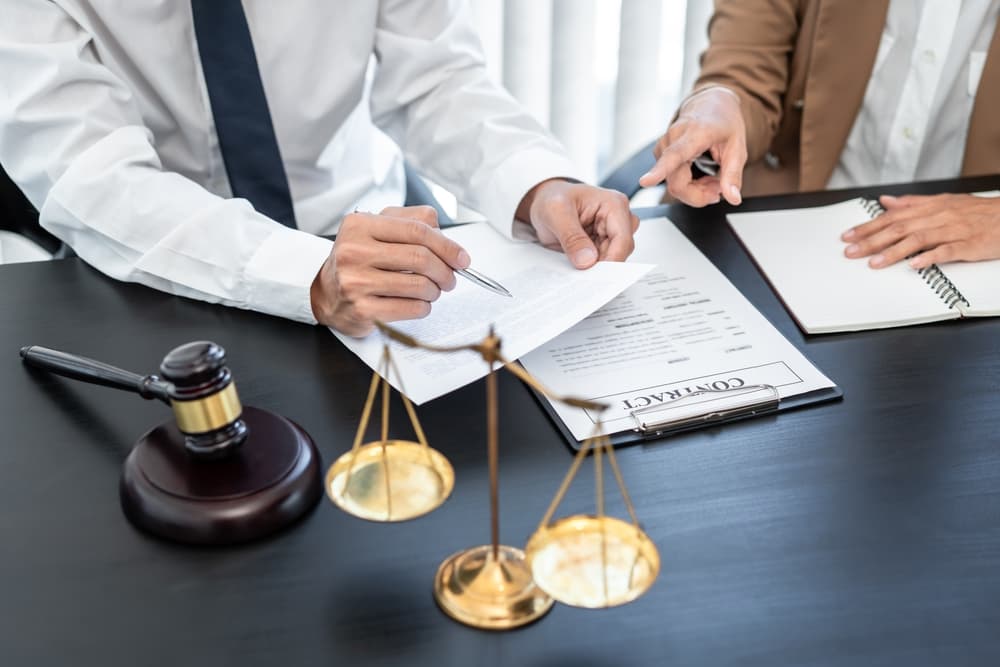California has long been a leader in progressive drug laws, and in 1996, it became the first state to legalize medical marijuana by passing Proposition 215. In 2016, California further allowed marijuana use by passing Proposition 64, which legalized recreational marijuana for adults aged 21 and older. However, despite the legalization of marijuana for both medical and recreational use under state law, marijuana remains classified as a Schedule I controlled substance under federal law. This presents a conflict for many individuals who hold professional licenses in California since state and federal regulations do not always align. This is especially true in fields that are subject to federal regulations.
Professional licensing boards in California often set standards and requirements that affect their licensees’ behavior. While some boards may have relaxed their marijuana policies, others continue to enforce strict rules that punish marijuana use – even if it is legal under California state law.
If you are currently facing the consequences as a professional for marijuana possession or use, it is beneficial to have a professional license defense attorney in California on your side to advocate for you. Your California professional license defense lawyer will determine your options, safeguard your rights, and aggressively defend you against any charges.
Understanding the Conflict Between State and Federal Laws

In California, marijuana use is fully legal for adults, but at the federal level, marijuana remains illegal for any purpose. This federal prohibition affects many industries that are regulated under federal law or require licenses from federal agencies. Even though a person may legally use marijuana in California, their professional license may still be at risk if their occupation is regulated through federal standards or their professional conduct violates state licensing guidelines.
The Controlled Substances Act (CSA) is a federal law that classifies marijuana as a Schedule I drug, meaning it is considered to have no medical use and a high potential for abuse. The Food and Drug Administration (FDA) and Drug Enforcement Administration (DEA) oversee this classification. As a result, industries like aviation, trucking, healthcare, and finance, among others, may impose restrictions on marijuana use for individuals who hold federal certifications, work in safety-sensitive positions, or are employed in federally regulated industries.
California, however, recognizes marijuana’s benefits for certain medical conditions and the rights of individuals to use marijuana recreationally. While state law protects the rights of citizens who wish to use marijuana, professionals who are licensed in fields requiring a high standard of care or responsibility may still face the consequences if their marijuana use affects their ability to perform their duties or violates the ethical standards of their industry.
Professional Licensing in California: The Potential Effects of Marijuana Use
California licenses a wide range of professions through state boards, many of which maintain strict standards regarding substance use. These standards exist to protect public safety, ensure professional competence, and maintain the public’s trust. Professionals working in areas like medicine, law, real estate, and transportation are often held to higher standards than the general public when it comes to drug use.
Some key areas where marijuana use can affect professional licensing in California include:
Healthcare Professions
Healthcare professionals, including doctors, nurses, pharmacists, and dentists, are required to maintain a high standard of care to ensure patient safety. These professions are heavily regulated through state boards such as the California Medical Board, California Board of Registered Nursing, and California Board of Pharmacy.
For example, the California Medical Board states that physicians must “maintain professional and ethical standards.” While marijuana use is not outright banned, physicians and other healthcare professionals must avoid any substance use that may impair their ability to provide care. If a doctor or nurse is involved in a case where their marijuana use led to impairment or negligent conduct, they can face disciplinary actions, including suspension or revocation of their license.
Legal Professions
Attorneys in California are licensed through the State Bar of California. Marijuana use by attorneys is not explicitly illegal under state law, but attorneys must adhere to the ethical rules set forth under the California Rules of Professional Conduct. If a lawyer’s marijuana use impairs their ability to practice law effectively, they may be subject to discipline from the State Bar. This can include suspension, disbarment, or other sanctions.
In some instances, attorneys working in legal areas involving federal law, such as immigration law or business law involving the interstate trade of goods, may face stricter scrutiny. Since marijuana is illegal under federal law, lawyers who engage in practices that involve federal agencies may be at risk of losing their licenses if they are caught using or possessing marijuana.
Commercial Driver and Transportation Professions

Marijuana use by individuals working in transportation and driving-related jobs is a particular concern because of federal regulations. Professionals like commercial truck drivers, pilots, bus drivers, and train operators are subject to federal oversight, including Department of Transportation (DOT) regulations. According to federal law, marijuana is prohibited for any employee in a safety-sensitive position, even if they are in a state like California, where marijuana is legal.
Truck drivers who test positive for marijuana may face disqualification from driving, fines, or revocation of their commercial driver’s license (CDL). Additionally, pilots or aviation employees are subject to the Federal Aviation Administration (FAA) rules, which prohibit the use of marijuana by pilots, air traffic controllers, and maintenance personnel. Even though marijuana use is legal in California, the federal government’s zero-tolerance policy for marijuana use in the aviation and transportation industries can lead to the suspension or permanent loss of a professional license.
Other Regulated Professions
Professionals in other regulated industries, such as real estate, financial services, and law enforcement, are also affected when it comes to marijuana use. The California Bureau of Real Estate (BRE) may investigate applicants or licensees who test positive for marijuana, especially if it appears to interfere with their business activities. Similarly, financial professionals regulated under federal laws, such as those working in banking or securities, may lose their licenses due to marijuana use.
Potential Penalties and Consequences
The consequences of marijuana use for professionals in California can be severe, depending on the severity of the violation, the industry, and the circumstances surrounding the individual’s case. Below are some potential penalties professionals may face for marijuana use or possession:
- Suspension or Revocation of Licenses: One of the most severe consequences for professionals who violate licensing standards is the suspension or revocation of their professional license. The disciplinary actions that licensing boards may take can vary, but they are often severe for individuals who are found to be impaired or negligent due to marijuana use. For instance, a healthcare professional who is found to be under the influence of marijuana while treating patients may have their medical license suspended or revoked.
- Fines: In some cases, professionals may face monetary fines as a result of marijuana use. This is more common for violations in industries that are federally regulated, such as transportation. Truck drivers who fail a marijuana drug test may be fined, or commercial truck companies may face penalties for failing to ensure their employees comply with drug-free workplace policies.
- Probation and Reeducation: Some professionals may be allowed to keep their licenses under probation or after completing reeducation programs.
- Disqualification from Employment: Professionals who use marijuana, even in legal amounts, may face disqualification from employment, particularly if their employer has strict drug-free workplace policies. For example, commercial drivers who fail a marijuana drug test may be disqualified from working until they pass a follow-up test, while employees in safety-sensitive roles may be placed on leave.
How a Skilled Professional License Defense Attorney Can Help with Your Legal Matter

If you are facing charges or disciplinary action related to marijuana use or possession, especially in relation to your professional license, consulting a knowledgeable California professional license defense attorney is important to protecting your rights and defending your career. A skilled attorney will help you navigate these difficulties and minimize the negative effects on your profession.
A skilled defense attorney can employ several strategies to help lessen the consequences of marijuana-related charges or disciplinary actions. Some of the key strategies include:
Challenging Drug Test Results
In many professions, drug tests are a common way to detect marijuana use. If you have tested positive for marijuana, an attorney can investigate the accuracy and validity of the test. Defense strategies may include questioning the reliability of the testing procedure, arguing that the sample was mishandled, or asserting that the test was not conducted according to legal standards. In some cases, false positives or improper testing methods can lead to the dismissal of charges.
Highlighting Legal Use Under State Law
While marijuana is illegal under federal law, it is legal under California state law for medical and recreational use. A defense attorney can argue that your marijuana use was in full compliance with state law, especially if you have a valid medical marijuana recommendation or you are using marijuana for legal recreational purposes. While this may not guarantee the dismissal of federal charges, it can be used as a mitigating factor in administrative hearings or before professional licensing boards.
Negotiating for Reduced Penalties
A knowledgeable defense lawyer can negotiate with licensing boards or employers to reduce the penalties you face. Instead of severe sanctions such as license revocation or suspension, your attorney can secure alternative outcomes like probation, a requirement for rehabilitation programs, or community service. In some cases, an attorney can also reach a settlement agreement that avoids further legal action or professional consequences.
Defending Your Professional Competence
One of the main concerns for professional licensing boards is whether your marijuana use affects your ability to perform your job duties effectively. A defense attorney can argue that your marijuana use did not affect your job performance or professional conduct. They may also present evidence showing that you were able to fulfill your responsibilities without any negative consequences and that your actions were in line with professional standards.
Protecting Your Career and Reputation
Your attorney can also protect not just your professional license but also your career and personal reputation. The implications of a license suspension or revocation can extend far beyond legal consequences, potentially damaging your professional future. A defense attorney’s goal is not only to help you resolve the legal issue at hand but also to minimize any lasting damage to your career by advocating for you effectively before regulatory boards and others.
Navigating Federal Regulations
If your profession is regulated through federal agencies, such as aviation (Federal Aviation Administration) or transportation (Department of Transportation), a professional license defense attorney with experience in federal law can help you navigate these stricter regulations. Even though marijuana may be legal in California, the federal government’s policies can make marijuana use a violation of employment rules, even if you do not operate under direct federal jurisdiction. A California professional license defense attorney experienced in federal regulations can challenge federal drug testing policies and represent you in proceedings with federal regulatory bodies to protect your job and professional standing.
Representing You Before Licensing Boards
Professional licensing boards in California have significant power to impose disciplinary actions, including suspension or revocation of your license if you are found to have violated their substance use policies. A professional license defense attorney can represent you during hearings with licensing boards, helping to build a strong case for why the board should not take drastic actions against your license. They will present evidence, negotiate settlements, and argue on your behalf to minimize potential penalties. If you are in a profession that requires strict ethical standards, such as law, healthcare, or law enforcement, your attorney can also ensure that your case is presented in a way that demonstrates your commitment to maintaining professionalism and upholding industry standards.
California law also provides certain protections for professionals when it comes to marijuana use, but the rules vary greatly depending on the industry and licensing body. A professional license defense attorney will educate you about your rights, ensuring that you understand your options and potential defenses. Whether you are dealing with drug testing, an investigation, or disciplinary hearings, your attorney will ensure that you know the steps to take to protect your license and career.
Fighting Federal Charges

In some cases, a professional may face federal charges related to marijuana use, particularly if they are working in industries that are under federal jurisdiction. A professional license defense attorney experienced in federal law can defend against these charges by challenging the application of federal law to your situation or seeking leniency based on your compliance with California’s marijuana laws.
Talk with an Experienced Professional License Defense Lawyer in California Today
In California, marijuana use and possession are legal for adults, but the conflict between state and federal laws can create challenges for licensed professionals.
If you are currently facing one or more charges or other consequences related to marijuana possession or use, Chudnovsky Law’s experienced professional license defense attorneys can help. They will work hard to minimize the consequences you face and will help you obtain the best possible result in your case.